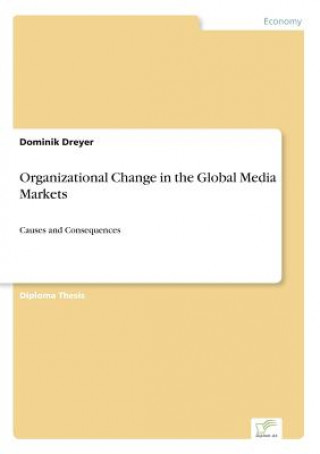
Kód: 02434048
Organizational Change in the Global Media Markets
Autor Dominik Dreyer
Diploma Thesis from the year 2003 in the subject Business economics - Business Management, Corporate Governance, grade: 2,1, University of Münster (Wirtschaftswissenschaften), language: English, abstract: Inhaltsangabe:Abstract:§T ... celý popis
- Jazyk:
 Angličtina
Angličtina - Väzba: Brožovaná
- Počet strán: 96
Nakladateľ: Diplom.de, 2003
- Viac informácií o knihe

Mohlo by sa vám tiež páčiť
-

Chauffeur and the Chaperon
41.40 € -

Mobilizing Woman-Power
47.94 € -

Warmups
24.12 € -4 %
Darujte túto knihu ešte dnes
- Objednajte knihu a vyberte Zaslať ako darček.
- Obratom obdržíte darovací poukaz na knihu, ktorý môžete ihneď odovzdať obdarovanému.
- Knihu zašleme na adresu obdarovaného, o nič sa nestaráte.
Viac informácií o knihe Organizational Change in the Global Media Markets
Nákupom získate 270 bodov
 Anotácia knihy
Anotácia knihy
Diploma Thesis from the year 2003 in the subject Business economics - Business Management, Corporate Governance, grade: 2,1, University of Münster (Wirtschaftswissenschaften), language: English, abstract: Inhaltsangabe:Abstract:§The global media industry has been subject to radical changes in its structure in recent years. International media companies have reached a dominant position in the global media markets through an enormous wave of mergers. Since the year 2000 the three biggest ever media mergers have taken place. AOL merged with Time Warner, Vivendi agreed on a merger with the Seagram Company and Canal+ and Viacom acquired the CBS Corporation. In 2001 the six biggest media conglomerates - AOL Time Warner, Walt Disney, Vivendi Universal, Viacom, Bertelsmann and News Corporation - alone generated revenues of $160 billion in comparison to aggregate revenues of $415 billion obtained by the Top 50 media companies.§This development was triggered by radical changes in the US - Federal Communications Commission s (FCC) regulation policy. Though it is the change in the FCC s deregulation policy which made the wave of mergers possible to start off with, the reasons why companies actually merged were more complex. The headwords dominating most corporate growth strategies at that time were convergence , synergy and need for large scale . Looking at the assessments of media mergers and corporate strategies published by the press and investment analysts one notices that they underlie a certain tendency towards unanimous and trend affected formation of opinion. While in 1999 the idea of convergence was embraced and denominated as one of the biggest opportunities for media companies ever, in 2002 the ratings and assessments of companies which tried to obtain first mover advantage in the newly emerging converged market were principally critical. At large, these judgments correlated to a very high degree with the rise and downturn of the new economy. Accordingly, some of the executives, who pressed ahead with the idea of convergence and spurred on mergers in order to achieve synergies, like Mr. Middelhoff (former CEO of Bertelsmann), Mr. Messier (former CEO of Vivendi Universal) and recently Mr. Case (former chairman of AOL Time Warner) had to vacate their positions. Yet some business leaders are beginning to break up the fully integrated media groups that emanated from these mergers.§This change in corporate strategies and in the assessment of media mergers brings up the following question: Is it that a fundamental change in the business environment has occurred? And did this change make the economic motives which not long ago underlay the wave of mergers and acquisitions obsolete? Or has the media industry awoke to the cognition that the keywords convergence , synergy and need for large scale which fuelled the emergence of fully integrated, global media conglomerates, at no time have been more than a few hyped buzzwords?§The present thesis will elaborate the major causes for organizational changes in the global media industry and the consequences of these changes, which media companies now have to react to. The key economic characteristics prevailing in the media industry and the changes that have occurred in the latter in recent years will be analyzed on the basis of the model of the value chain. Furthermore it will be examined which economic concepts can be applied in order to evaluate the advantageousness of different types of mergers and acquisitions. In particular it will be shown that the bigger part of the strategic arguments often asserted as rationale for corporate growth strategies can be ascribed to a few basic economic concepts. In this connection it will be analyzed in detail, to which degree transaction cost theoretic considerations, which the majority of the literature about media economics treats as secondary, can contribute to the assessment of vertical growt...
 Parametre knihy
Parametre knihy
Zaradenie knihy Knihy po anglicky Economics, finance, business & management Business & management Management & management techniques
108.98 €
- Celý názov: Organizational Change in the Global Media Markets
- Podnázov: Causes and Consequences
- Autor: Dominik Dreyer
- Jazyk:
 Angličtina
Angličtina - Väzba: Brožovaná
- Počet strán: 96
- EAN: 9783838667515
- ISBN: 3838667514
- ID: 02434048
- Nakladateľ: Diplom.de
- Hmotnosť: 136 g
- Rozmery: 210 × 148 × 6 mm
- Dátum vydania: 04. May 2003
Obľúbené z iného súdka
-

High Output Management
16.66 € -14 % -

Principles
26.06 € -23 % -

The Five Dysfunctions of a Team
22.59 € -20 % -

The Making of a Manager
16.45 € -24 % -

Turn The Ship Around!
12.05 € -16 % -

Hooked
12.87 € -24 % -

Inspired - How to Create Tech Products Customers Love, 2nd Edition
29.95 € -3 % -

Give and Take
10.21 € -24 % -

Multipliers, Revised and Updated
11.85 € -23 % -

Devil Take the Hindmost
16.55 € -22 % -

Traction
17.68 € -17 % -

The 4-Hour Workweek
22.99 € -18 % -

The Daily Stoic
14.10 € -24 % -
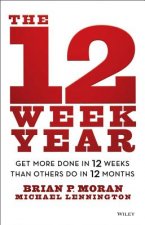
12 Week Year - Get More Done in 12 Weeks than Others Do in 12 Months
20.85 € -21 % -
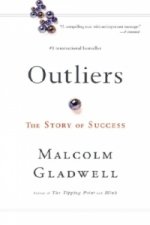
Outliers
9.09 € -17 % -

Way, the Enemy, and the Key
60.82 € -22 % -

Leadership BS
31.79 € -6 % -

Managing Change in Organizations
34.55 € -4 % -

Triggers
11.24 € -13 % -

Scrum
11.34 € -24 % -
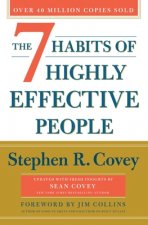
7 Habits of Highly Effective People
22.18 € -

Drive
12.26 € -23 % -

New One Minute Manager
10.62 € -21 % -

Wooden on Leadership
26.27 € -23 % -

Spiral Dynamics - Mastering Values, Leadership and Change
38.64 € -3 % -

Leaders Eat Last
16.04 € -
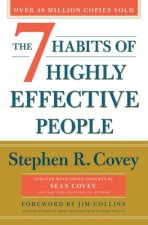
The 7 Habits of Highly Effective People
24.22 € -22 % -

How Women Rise
10.93 € -24 % -

Dealing with Difficult People (HBR Emotional Intelligence Series)
14.30 € -10 % -
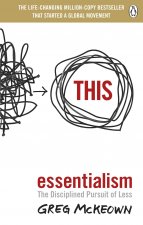
Essentialism
13.38 € -21 % -

Million Dollar Habits
19.62 € -19 % -

Unlimited Memory
17.17 € -19 % -

Standard for Portfolio Management
72.28 € -4 % -

Primal Leadership
24.22 € -17 % -
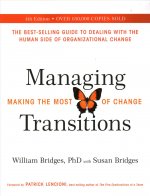
Managing Transitions
18.60 € -23 % -

I Dare You!
4.69 € -23 % -

Executive Coaching with Backbone and Heart - A Systems Approach to Engaging Leaders with Their Challenges 2e
68.80 € -

27 Challenges Managers Face
27.60 € -6 % -

Economist Guide to Financial Management 3rd Edition
21.15 € -13 % -

It's Not the How or the What but the Who
22.69 € -27 % -

Millionaire Fastlane
26.47 € -

Extreme Ownership
24.12 € -23 % -

Leaders Eat Last
11.03 € -23 % -

The Coaching Habit
17.47 € -5 % -

Professional Product Owner, The
33.01 € -3 % -

It's the Manager
38.84 € -5 % -
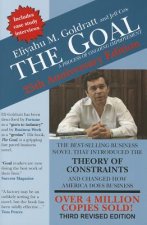
Goal
21.15 € -19 % -

Co-Active Coaching
36.80 € -3 % -
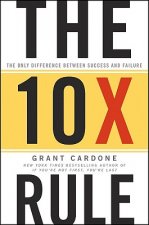
The 10X Rule
22.59 € -20 %
Osobný odber Bratislava a 2642 dalších
Copyright ©2008-24 najlacnejsie-knihy.sk Všetky práva vyhradenéSúkromieCookies



 21 miliónov titulov
21 miliónov titulov Vrátenie do mesiaca
Vrátenie do mesiaca 02/210 210 99 (8-15.30h)
02/210 210 99 (8-15.30h)